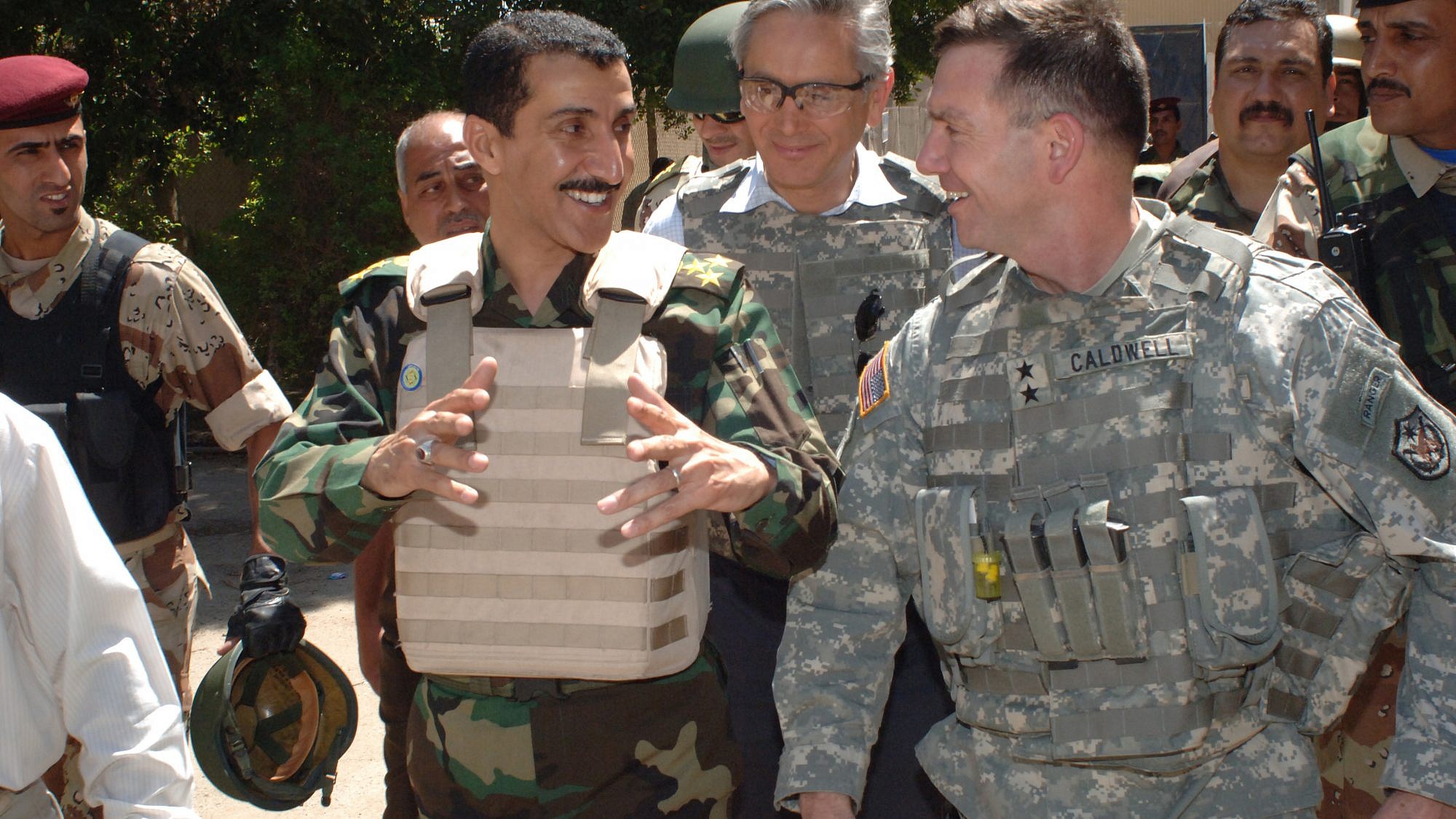U.S. President Donald Trump reportedlyagreed this month to keep American soldiers in Syria indefinitely in order to prevent Iranian entrenchment there and to keep up the fight against Islamic State. Yet the Trump administration also seems to be aware that military training of Middle Eastern forces has a poor record of success.
The Trump administration has been much less involved in state-building in general within the Muslim world and particularly with training the Islamist-dominated Syrian opposition groups. Trump said in April that he wanted to “get out” of Syria and was considering such a move. This would be a wise policy objective, but troops should probably remain for now to maintain leverage over Iran, Russia, and Syria. However, any training should be used in a very limited manner unless conditions for training are changed—in order to salvage American soldiers’ lives and tax-payer funds.
Norvell DeAtkine, a retired U.S. Army colonel with eight years’ residence in Lebanon, Jordan and Egypt, has spent more than 40 years in various Arab countries dealing with their militaries. He told JNS that one of the basic problems is that America goes into training Middle Eastern forces based on an American cultural mindset.
DeAtkine, who still instructs army personnel assigned to the Middle East, said that training such forces rarely works, and when it does, it usually consists of expertise with individual weapons and small-unit tactics. “But when it gets into teaching principles of maneuver, the use of artillery and the coordination with infantry, especially combined arms, there is a problem.”
When dealing with non-state militias, such as Syrian rebel groups or Kurdish forces, “we are training militias using conventional military standards.” Some problems relate to the ethnic or tribal makeup of the fighters, who are often related to one another, and the leaders often got there because of bravery, strength or for being more brutal, but not necessarily for proficiency in military doctrine, he continued.
“We don’t look at their culture when we train,” said DeAtkine, adding that on the surface, it works, “but once we leave and they go into the field alone, they revert back to their own ways of doing things.”
An example of this was the U.S.-trained Iraqi army. “We had trained them up to a certain standard, and once we left, they reverted back to their own standards and the typical way of doing things—meaning corruption, nepotism and so on—the same problems that existed during former [Iraqi] President Saddam Hussein’s reign.”
He also mentions the example of the British training of the Egyptian army in the 1880s, which improved the Arab country’s military, but ran into similar obstacles when British trainers departed. In Jordan, British training standards continued for quite a long time, but now their military proficiency has eroded and for the most part has reverted back to the Arab way of military training.
In order for training to work, DeAtkine argues that it would have to be ongoing and intense for a long period of time because “the culture is so strong that they would revert back to their ways once Western trainers depart.”
Questioned about the Kurds, the U.S. military expert also mentions the deep and multiple political divisions that cause problems in the first place.
“When I give cultural training to U.S. army trainers preparing to go to the Middle East, I tell them: You are not over there to create the best army in the world, but to maintain influence in the most important institution in the Arab world, which is the military.”
According to DeAtkine, U.S. policy should limit its objectives in the region to building relationships and maintaining influence, and not to remake their society or culture.


























